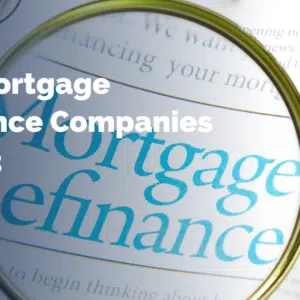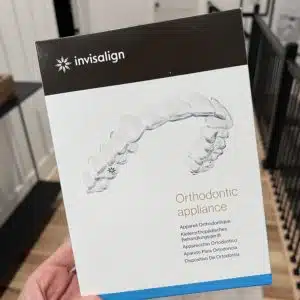If you listen to most financial experts who dole out advice about retirement these days, they seem to be in complete agreement about pursuing a 401(k) match with your employer. After all, the workplace 401(k) match is the closest thing to “free money” most of us will come across, and who doesn’t want some free cash for retirement?
The thing is, the employee match isn’t all that exciting — and I would argue that some people (but not everyone) would be better off forgoing their employer match to invest in a Roth IRA. There are a few main reasons I feel this way:
- First, 401(k) vesting schedules will determine when you get your employer match and how much of it you actually receive. If you’re planning to switch jobs within a few years, there’s a good chance your employer’s vesting schedule could leave you with approximately 0% of your 401(k) match.
- Second, most employees are invested in a Qualified Default Investment Alternative, or QDIA, anyway, which usually means a target date fund chosen by your plan. These investment options can be expensive and they can also yield some unimpressive results.
- Finally, learning to invest yourself is probably the most valuable step you can take to build wealth, yet you may not learn a thing if you simply throw more money into your 401(k) and hope for the best.
But I digress. Scoring some free money in a 401(k) match is definitely a smart move, but it’s not for everyone. And for some people, I would even suggest that credit card rewards could leave them better off.
How Credit Card Rewards Might Leave Your 401(k) Match in the Dust
You’re probably thinking I’m crazy right now. After all, credit cards almost always cost people money in both interest and fees! Yes, they offer rewards, but there are millions of people who spend their lives paying exorbitant interest rates so that financially savvy people can book all those luxury trips to the Maldives on points.
The thing is, you don’t have to pay a dime in interest and fees, and most people know that. And really, there are tons of people who maximize rewards to the hilt and never pay a penny in interest. So that’s who I am talking about here. People who could benefit from rewards have the discipline and budgeting skills to never overspend and always pay their credit card bills in full each month.
How could this work? Consider the fact that the average household income was around $61,937 at last count. Since the average employer match worked out to 4.7% last year according to figures from Fidelity, the theoretical average household could be earning around $2,911 in employer match funds per year — if they were far enough in their vesting schedules to actually receive this full amount.
Now consider this recent survey from GoBankingRates, which says the average American spends around $66,928 annually on expenses and an estimated $221 a day including housing, entertainment, and transportation. When you take out expenses that typically can’t be charged to a credit card, you’re left with around $189 in daily spending potential.
If you charged $189 per day to a rewards credit card that doles out 2%, you would wind up with $1,379.70 per year in rewards, which is less than an employer match. However, you could easily wind up way ahead if you signed up for multiple cards that let you earn significant signup bonuses the first year.
Imagine for a moment you signed up for the Chase Sapphire Preferred, which lets you earn 60,000 points worth $600 in statement credits when you spend $4,000 within three months of account opening.
Now imagine you paired that card with two more throughout the year — The Bank of America Premium Rewards Credit Card, which gives you 50,000 points worth $500 when you spend $3,000 within 90 days of account opening, and the Capital One Savor Cash Rewards Credit Card, which gives cardholders a bonus of $300 when they spend $3,000 on their cards within three months of account opening.
If you put $10,000 in spending on these three rewards credit cards throughout the year to earn their welcome bonuses, you would ultimately rack up $2,479 in credit card rewards — $1,179 in rewards with your cash-back credit card that earns 2% and another $1,300 in signup bonuses.
But remember, this is all based on average spending. If you’re someone who spends a lot of money on credit cards each year for work or for pleasure, or if you’re someone who has learned how to pay all their bills, and even mortgage payments, with a credit card, then you could rack up significantly more.
How much more? That really depends on how much you spend, but here’s an example.
Let’s say for a moment you spend $10,000 on credit cards each month. That might seem like a lot, but it may not be a huge amount if you can pay for daycare, groceries, gas, some travel, entertainment, and all your kid’s activities with a credit card. And if you have a business with regular expenses you can charge for travel, meetings, inventory, and more, $10,000 per month could just be a drop in the bucket.
Using the same scenario above, you would earn $3,500 in rewards the first year — $2,200 in cash back with a card that earns 2% and the rest in credit card signup bonuses.
Also, remember that some cards offer more than just 2% back at the beginning. The GM BuyPower Card, for example, gives you 5% back on the first $5,000 you spend each year followed by 2% back on the rest of your purchases. You do have to redeem your rewards for a new Chevrolet, Buick, Cadillac, or GMC vehicle, but you may not care if you upgrade your car every few years anyway.
Either way, that’s not half bad for “free money” You can score if you pay your card in full each month and never pay interest on your purchases.
Bottom Line: Do Credit Card Rewards Beat a 401(k) Match?
Can credit card rewards exceed your 401(k) match at work? Maybe or maybe not, but you’re lucky that you don’t have to choose one or the other. You can sign up for your workplace 401(k), earn an employer match, and pursue credit card rewards until the cows come home. Just remember that, to get ahead with credit card rewards, you can never pay a dime in interest. If you pursue rewards and carry a balance, you’re not doing yourself any favors.
The point is, don’t just assume that the run-of-the-mill financial advice you hear is always the best. Your 401(k) match may be the best deal you’ve ever come across, but you might also never see a dime of free money thanks to vesting schedules.
Either way, make sure you research all the angles and don’t assume all the advice you hear is good advice. Do your own research and make your own decisions, and you’ll be a lot better off in the end.







